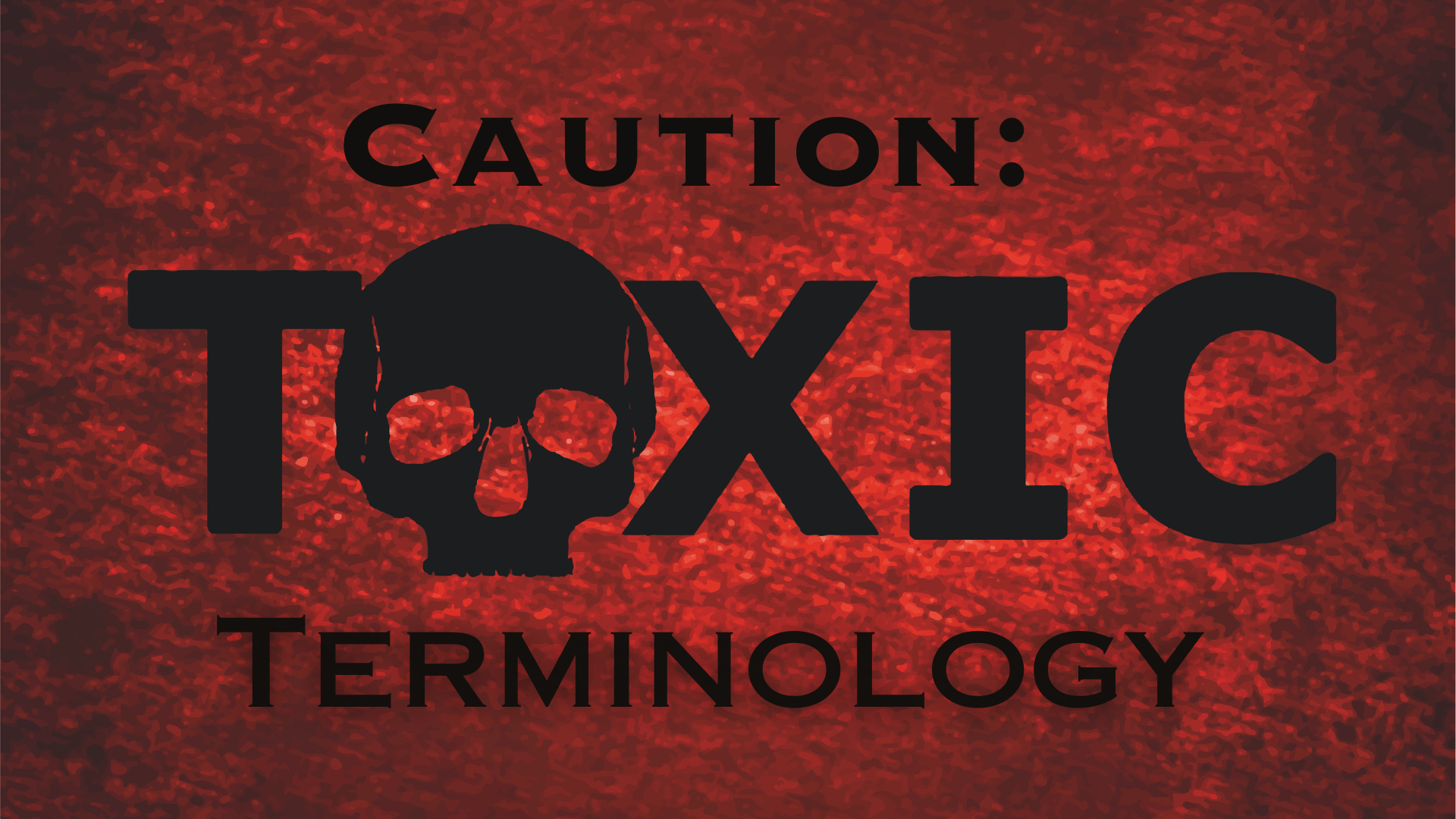A Blind Spot to Male Victims, and the Downfall of Boris Johnson
Politics is brimming with critical incidents, from Watergate to Beergate. In the field of psychology, we describe a ‘critical incident’ as an occurrence that makes a significant contribution to our understanding of a phenomenon. Such incidents – which might be positive or negative - have the potential to guide us towards more positive outcomes.
In this article I invite you to consider two critical incidents that contributed to the downfall of Boris Johnson. These incidents will also, I think, illustrate a moral ‘blind spot’ that future Prime Ministers may wish to avoid in order to achieve better outcomes.
Critical incident #1. Pinchgate
History will remember ‘The Chris Pincher Scandal’ as the government crisis that ultimately led to Boris Johnson’s resignation. The day before that resignation finally came, Keir Starmer stood up in Parliament and succinctly summed up the situation that had led to the largest number of ministerial resignations in recorded history. Essentially: ‘For a week [the Prime Minister] had them defending his decision to promote a sexual predator.’
The Code of Conduct for Members of Parliament states clearly that
‘Members have a duty to uphold the law, including the general law against discrimination’ and sexual harassment. Also, employers have to take ‘reasonable steps’ to safeguard their employees against any such harassment.
So why then did the Prime Minister appoint Pincher as deputy whip in charge of other MPs' welfare, despite knowing that his ‘handsy’ reputation had led to a previous resignation in a similar role?
And why then did government whip Sarah Pines MP observe that taking such reasonable steps to protect his male victims was somehow less than ‘straightforward’?
One reason appears to be ‘political correctness’, which has previously contributed to the failure to protect innocent victims from sex crimes. In the case of the #Pestminister scandal, safeguarding men from sexual harassment from other men is apparently less than straightforward because it ‘ risks playing into homophobic stereotypes’.’
Such a fear undoubtedly has relevance, but I believe this culture of looking the other way, instead of taking a moral stand, has manifested for reasons much broader than the fear of being branded a homophobe.
Critical incident #2. The Prime Minister’s Hidden Harms Summit
On the 21st of May 2020, approximately seventy representatives from across Government, the NHS, law enforcement, state funded charities and frontline services were invited to an emergency summit to discuss ‘hidden harms’, or crimes that typically take place ‘behind closed doors, hidden away from view’. The day began with an address from Johnson where he spoke of his personal determination to ‘eradicate violence against women and girls’ and go after, predominately male, perpetrators and ‘come down on them like a tonne of bricks’.
“[Gary] Cunningham’s killing, like little Arthur’s, is recorded in Government statistics as Violence Against Women and Girls, despite both being crimes committed by women against male victims.”
He ended by reassuring: ‘every woman, every female person in this country… that she is not alone’, a phrase which echoed the Government’s #YouAreNotAlone public awareness campaign tag line, launched two months previously by, then Home Secretary, Priti Patel. During awareness-raising media interviews, Patel had been clear in her messaging that the #YouAreNotAlone campaign was intended to speak to all victims of abuse, including men and children.
So why then did Boris Johnson use such exacting and exclusive gendered language in his opening address? Why then did he also mislead an audience of safeguarding professionals, including the country’s most senior police officer, by claiming that ‘the overwhelming majority’ of victims of hidden harms are female?
It seems unlikely that Johnson was simply incorrectly briefed. Instead the Prime Minister’s very exacting language was presumably deliberately designed to reflect a dominant political perspective, transcending empirical evidence, that many in his audience of around seventy senior state-sponsored safeguarding professionals proactively support or, for whatever reason, tolerate at the very least.
This political perspective appears also to inform the Government’s strategy to tackle ‘Violence Against Women and Girls’ (VAWG), a strategy that, for whatever reason, minimizes the visibility of male victims and also skews public perceptions about the perpetration of violent crime.
Two recent high profile cases of crime - categorized as Violence Against Women and Girls - illustrate this skewed perspective.
Star Hobson was killed with a fatal blow to the head delivered ‘with the force of a car crash by her mother’s female partner. Star endured months of assaults and psychological harm, and Bradford Council’s children’s services were severely criticized for dismissing numerous concerns raised in the months leading up to her death.
Once again, the phenomenon of ‘political correctness’ appears to have been a major factor in delaying help, with social workers who investigated the couple concluding that a referral made just one week before her death was ‘malicious’ and made by ‘racist homophobes’.
Another tragic example involved the murder of six year old Arthur Labinjo-Hughes, who died after his father’s girlfriend bashed his head against a hard surface multiple times. Arthur had been left in their care after his mother had been sentenced to life imprisonment for the murder of her boyfriend Gary Cunningham. Cunningham’s killing, like little Arthur’s, is recorded in Government statistics as Violence Against Women and Girls, despite both being crimes committed by women against male victims. [Edit: for an explanation of this strange practice, see here.]
There are countless other examples that sit far from neatly within Boris Johnson’s perception of ‘victims and perpetrators’ of crimes categorised in this country as ‘Violence Against Women and Girls’ (VAWG). Tragically, many involve children, and retrospective acknowledgements of major ‘missed opportunities’ and ‘safeguarding failures’ by social services.
Annual data from the Office of National Statistics also repeatedly indicates that roughly one in every three victims do not fit neatly within Boris Johnson’s depiction of ‘victims and perpetrators’ of domestic abuse. In 2020, over 2 million people reported experiencing domestic violence, 757,000 of whom were men, and 90% of whom identified their perpetrator to be female.
“…some Parliamentarians view their ability to take reasonable steps to protect others from crimes categorised as’ Violence Against Women and Girls’ to be less than ‘straightforward’ when the victims happen to be male.”
Despite this, when the government’s Minister for Home Affairs was recently asked if she would publish a strategy parallel to VAWG to tackle intimate violence against men and boys, she said she hadn’t done so, because “there might have been a lot of complaints from women and domestic abuse organisations, that we hadn’t reflected that it was predominantly women who had suffered from domestic abuse”.
Parliamentarians as Senior as the Prime Minister seem entirely beholden to the ever-expanding demands of the powerful VAWG lobby, a lobby largely funded by the British taxpayer. One reason for this is, presumably, a fear of being passive aggressively portrayed by critics and opportunists as uncaring and somehow endangering the interests of women and children. Hidden Harms are, after all, a highly emotive issue and such perceptions would have the potential to do any political party, or individual MP, serious damage at the ballot box. Whatever the reason, when it comes to violence against boys and men, people tend to look the other way.
The Moral Blindspot: Equally Seen, Served and Safe?
We may never know exactly why it was that the Prime Minister chose to promote a suspected perpetrator of ‘violence against women and girls’ into his Cabinet, instead of ‘coming down on him like a tonne of bricks’.
Nevertheless, the catastrophic failure that ultimately led to Johnson’s downfall shows us that some Parliamentarians view their ability to take reasonable steps to protect others from crimes categorised as’ Violence Against Women and Girls’ to be less than ‘straightforward’ when the victims happen to be male.
One reason for this problem is that taking reasonable action to address the predatory behavior of some people with protected equality characteristics can leave MPs vulnerable to critics or opportunists promoting the perception that those actions might be motivated by bigotry such as misogyny, homophobia, racism and Islamophobia. So one can see why our representatives might consciously feel pressure to look the other way.
Sadly, I suspect that the recent outpouring of outrage in Parliament may have had more to do with political pragmatism and finally ‘getting’ Boris than any collective realisation about its members’ duty to uphold the law, including the general law against discrimination. But maybe, just maybe, the sudden surge to show concern and due regard towards Chris Pincher’s alleged victims will be remembered as a turning point for male victims currently rendered invisible by exclusively gendered discourse and statistical data.
And maybe, just maybe, our next Prime Minister will have the moral backbone to lead the way.
Scroll down to join the discussion
Disclaimer: This article is for information purposes only and is not a substitute for therapy, legal advice, or other professional opinion. Never disregard such advice because of this article or anything else you have read from the Centre for Male Psychology. The views expressed here do not necessarily reflect those of, or are endorsed by, The Centre for Male Psychology, and we cannot be held responsible for these views. Read our full disclaimer here.
Like our articles?
Click here to subscribe to our FREE newsletter and be first
to hear about news, events, and publications.
Have you got something to say?
Check out our submissions page to find out how to write for us.
.

















































